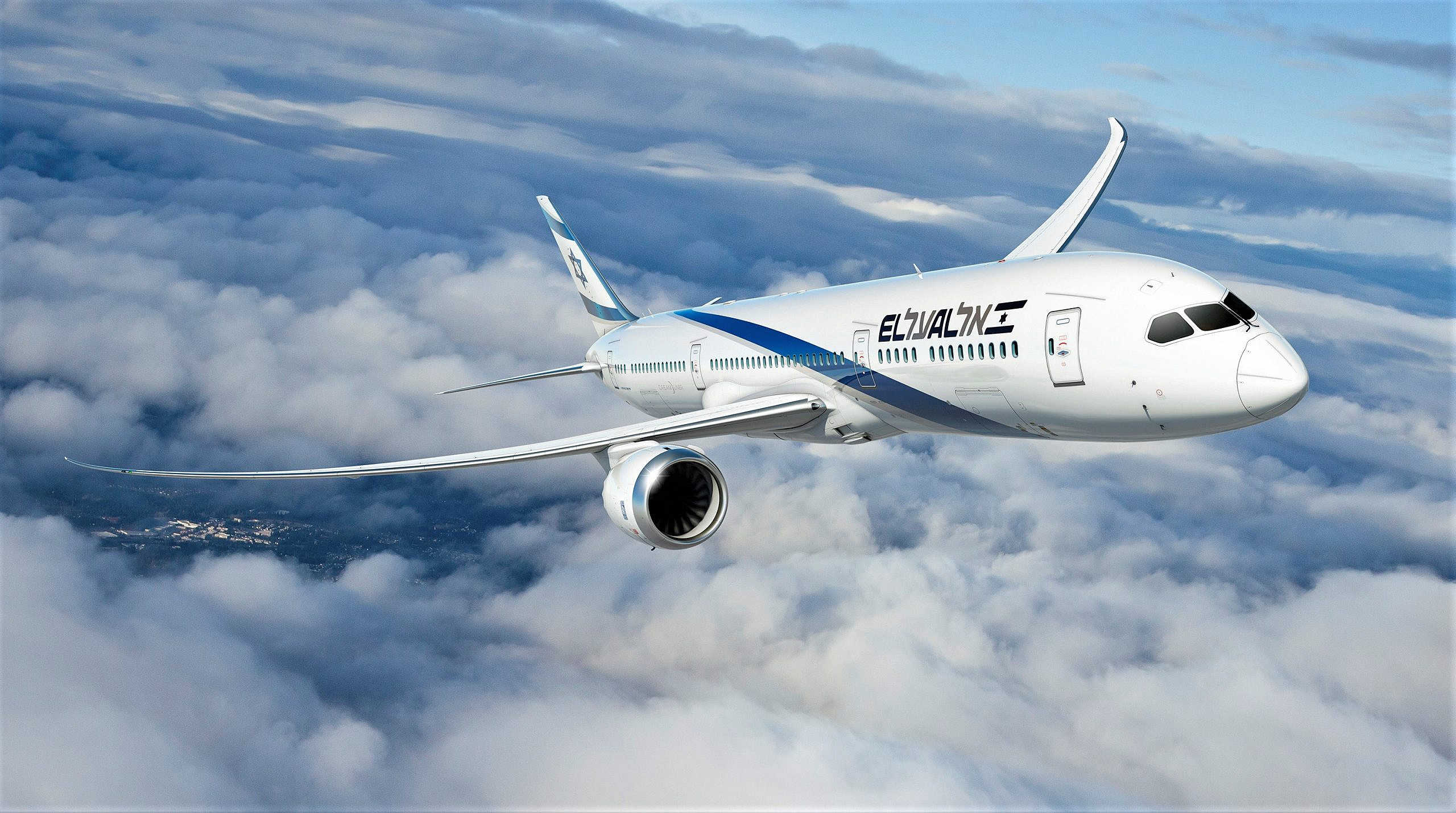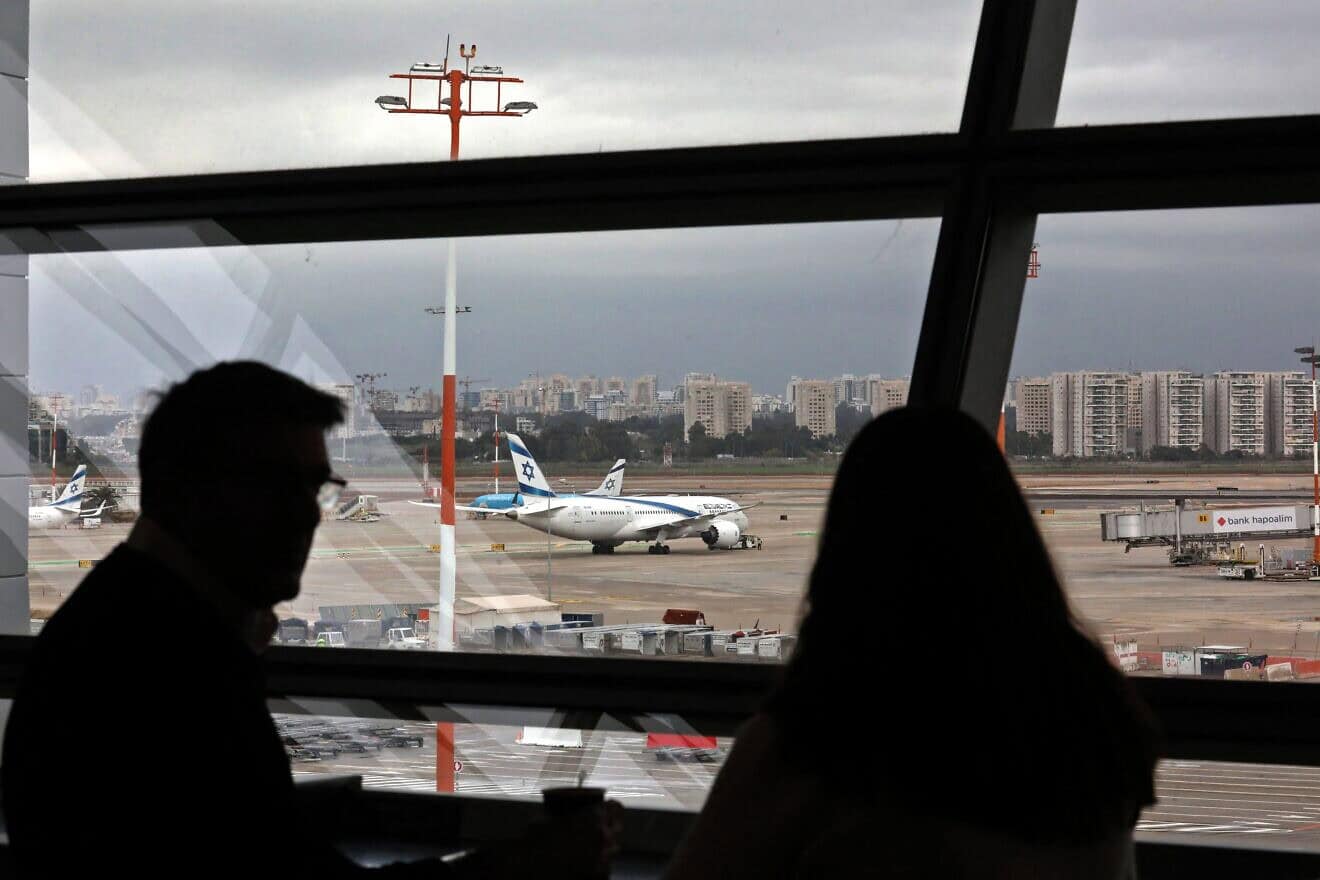El Al Airlines, which standardized fares last week to four cities that will serve as global transportation hubs until the end of the year, faces an Israel Competition Authority investigation for allegedly “unfair” prices.
Travel experts told JNS that some of the charges leveled at the private company, which is traded on the Israeli stock exchange but whose security costs the Israeli government pays, are a lot of hot air.
A debate, however, centers on whether the issue is price gouging—El Al’s fares are considerably more expensive than in previous years with record profits in recent months—or a case of supply and demand
“When seats are scarce, prices will skyrocket. That’s just market forces at work,” Daniel Eleff, founder and CEO of the Cleveland-based discount website DansDeals, told JNS.
“I think El Al is in a tough spot here,” he added. “They are making record profits due to the scarcity of seats to and from Israel, but that’s just based on their pricing algorithms working as programmed.”
With most airlines having halted service to and from Tel Aviv since the Hamas terrorist attacks in southern Israel on Oct. 7 and the ensuing war with the terrorists in Gaza, many travelers have had no choice but to turn to El Al.
As the High Holidays loom and with the threat of another front with Hezbollah on the northern border, the Israeli flagship carrier again finds itself the sole mode of international transportation.
Mark Feldman, Jerusalem director of Israel’s Diesenhaus Tours, told JNS that “factually, they are a monopoly to North America, but economically speaking, there is simply not enough supply to handle the demand.”
Feldman noted that most people snagging last-minute tickets to and from the United States this month on El Al were either rebooked from the United States or other carriers that canceled flights to or from Israel or had to travel for a family or other emergency.
That meant that every available seat was taken at the height of the busy summer season.
“Anyone buying a ticket at the last moment and can find space will pay stratospheric prices,” he said. “But only because there are simply so few seats available.”
Rep. Ritchie Torres (D-N.Y.) sent a letter on Wednesday to the CEOs of American Airlines, Delta Airlines and United Airlines asking them to consider relaunching flights to and from Israel to “prevent the appearance and the substance of discrimination against the Jewish state,” Jewish Insider reported.
“The suspension has been so prolonged and so pervasive that El Al, an Israeli airline, has become the sole carrier offering direct flights from America to Israel,” the pro-Israel congressman wrote. “The lack of competition has made air travel to Israel less available and less affordable, putting customers at the mercy of a de facto monopoly that can easily gouge prices with impunity.”
‘A lifeline for people’
Yoni Waksman, vice chairman of Israel’s Ophir Tours, told JNS that “there has been talk that they are exploiting the situation, but whether or not this is the case is the subject of an investigation.”
El Al is also “doing a lot for Israel, and it is thanks to them that we can fly and are not under closure,” he said.
Still, the increased wartime fares and record-breaking profits for the airline are garnering headlines, as in a recent story in the Israeli financial daily Globes, whose English headline read “El Al milks monopoly on Tel Aviv-New York flights.”
Eleff, of DansDeals, noted that “others will argue that a flag carrier is obligated to help in the war effort by keeping airfare affordable, though I’d argue that the airline is doing so just by continuing to fly and be a lifeline for people to fly to and from Israel.”
Feldman, of Diesenhaus Tours, said the answer is “definitely somewhere in the middle.”
“It’s not like El Al has planes sitting around,” he said, noting the carrier runs five daily flights to and from New York.
By the numbers
The Israel Airports Authority told JNS that just 30 of 100 international carriers that flew to Israel before the war currently offer service to the Jewish state. El Al now runs almost half of all the flights to and from Tel Aviv, per the authority.

On Wednesday, it operated 76 of 184 departures from Ben-Gurion International Airport and 77 of 183 arrivals, according to airport data.
Since Oct. 7, El Al has routinely held a 70% to 85% market share of every city where it’s flown since Oct. 7, according to Feldman. Meaning that along any route to or from Israel, Israel was responsible for roughly three-quarters of the flights between the Jewish state and that city.
The carriers with the most flights to and from Tel Aviv this month after El Al—with significantly fewer flights than the flagship carrier—have been two smaller Israeli carriers, Israir and Arika.
Ben-Gurion reported a 30% drop in passengers during August, normally its busiest month, according to the airport authority.
‘A small drop in the bucket’
El Al’s recent announcement of fixed prices to the four international cities is being seen by some as an effort to throw cold water on the Competition Authority probe and to placate the public.
“Since Oct. 7, El Al has been conducting a strict price policy that includes regular price reductions, while increasing the supply of flights to nearby destinations, in order to allow as many Israelis as possible to leave or enter the country,” the Israeli carrier told JNS.
“Throughout the period, the company repeats and emphasizes that advance planning and early purchase of flight tickets allow you to enjoy much more favorable prices,” El Al added.
Feldman said that the prices to the four cities “is a populist response to handle those thousands of Israelis who had tickets on airlines no longer flying and are paying thousands of dollars to get home.”
“It is a small drop in the bucket,” he said.
Eleff noted that fixed prices aren’t the solution. “Government-set price controls distort the free market, creating artificial scarcity that creates other problems and doesn’t solve the real issues,” he said.
He said that the Israeli government would be better off coordinating insurance coverage, which may be preventing other airlines from flying to Israel. That, he added, would mean that there would be enough seats on the market, which would bring down prices.
As the High Holidays approach, El Al seems to be the only option for those who want to fly directly between Tel Aviv and New York—the state with the largest population of Jews in America and many with relatives or even second homes in Israel—with Delta and United tentatively slated to fly the route again in the fall and American in the spring.
“New York is a very profitable route for the airlines,” Waksman said. “The U.S. airlines would be happy to be back.”


























